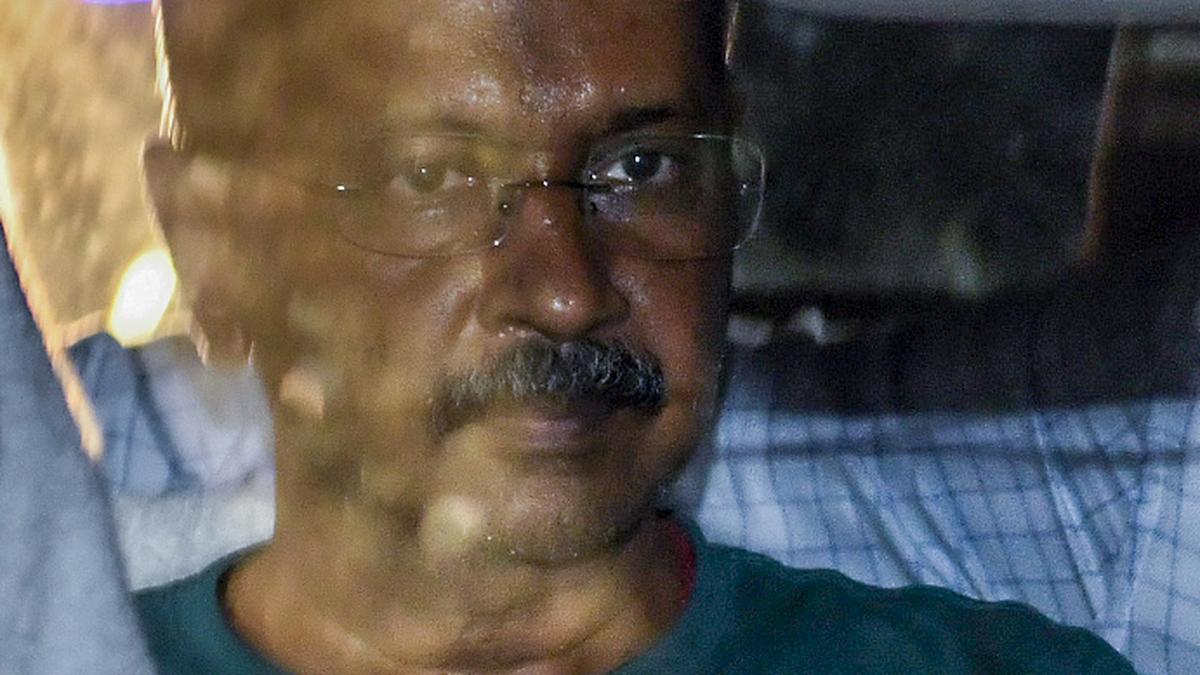
Why has CBI arrested Arvind Kejriwal and what happens next? | Explained
The Hindu
Arvind Kejriwal arrest news: Delhi Court sends Arvind Kejriwal to CBI custody for 3 days in corruption case, amid legal challenges. Read more details on his arrest and what happens next on The Hindu
A Delhi Court on June 26 sent Delhi Chief Minister Arvind Kejriwal to the CBI’s custody for three days, hours after the agency arrested him in a corruption case related to the alleged excise policy scam. Special judge Amitabh Rawat cited the investigation’s findings, Mr. Kejriwal’s alleged role, and the need to confront him with evidence as reasons for the decision. He however cautioned the agency to not be “overzealous”.
The day also saw the Chief Minister withdraw his petition from the Supreme Court challenging the interim stay imposed by the Delhi High Court on bail granted by a trial Court in a money laundering case related to the same liquor policy. Mr. Kejriwal’s counsel, senior advocate A.M. Singhvi, apprised the top court that he would return with a fresh challenge against the final verdict of the High Court wherein the bail order was stayed for not adequately appreciating the evidence advanced by the ED. Special judge Niyay Bindu in the impugned order had highlighted the ED’s failure to procure any direct evidence linking Mr. Kejriwal with the proceeds of the crime.
Also read: Trial court order had come down on ED ‘bias’ in Kejriwal case
The Delhi Excise policy 2021-2022 was introduced in November 2021 to revolutionise the liquor retail landscape in the capital. It aimed to maximise revenue for the region, combat the sale of counterfeit alcohol, and enhance the consumer experience. However, following allegations of procedural irregularities, the policy was scrapped on August 1, 2022. Soon after, the federal law enforcement agencies — the CBI and the ED began probing the commission of an alleged scam. While the ED is investigating the alleged money trail, the CBI’s remit has been to investigate corruption and bribery charges against public servants.
On March 21, Mr. Kejriwal was arrested by the ED on money laundering charges under the Prevention of Money Laundering Act, 2022 (PMLA). In May, the agency filed its first charge sheet naming the Chief Minister as well as the Aam Admi Party (AAP) as accused in the case. In the nearly 200-page document — the eighth in a series of charge sheets filed by the ED since November 2022, the agency claimed that Mr. Kejriwal was directly involved in formulating the excise policy and demanded kickbacks to the tune of ₹100 crore from the “South Liquor Lobby”. The liquor lobby refers to a group of influential persons from South India who purportedly secured undue favours to establish wholesale businesses and paid the political party in return. Additionally, the ED accused the Chief Minister of utilising ₹45 crore of laundered money in AAP’s 2022 Goa election campaign.
In July 2022, Lieutenant Governor V.K. Saxena recommended a CBI probe into alleged irregularities surrounding the formulation of the excise policy. This marked the beginning of the agency’s involvement leading to the registration of a corruption case under the Prevention of Corruption Act, 1998 (PC Act). Although Mr. Kejriwal was interrogated by the CBI in April, he has not been impleaded as an accused in the case. The agency has so far filed four charge sheets against 17 accused persons including former Delhi Deputy Chief Minister Manish Sisodia and Bharat Rashtra Samithi legislator K. Kavitha.
Also read: Delhi liquor excise policy case | CBI files supplementary charge-sheet against Manish Sisodia and three others











